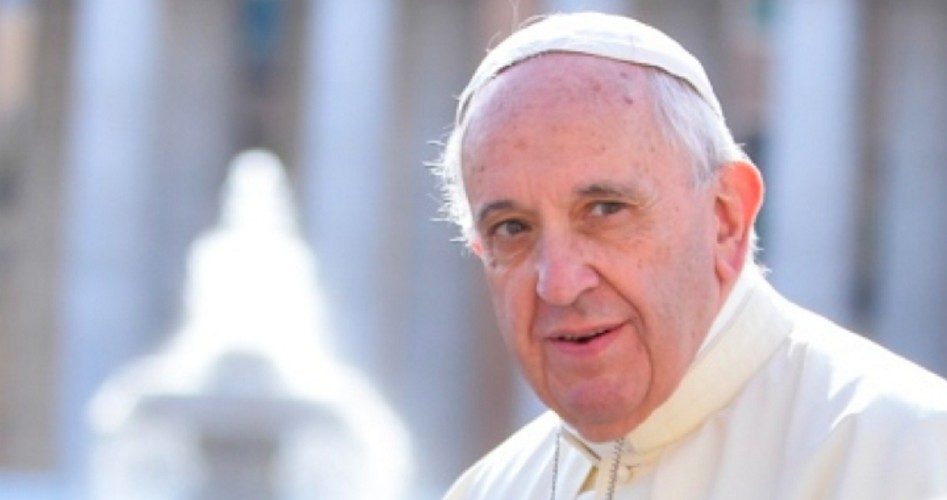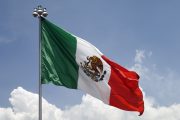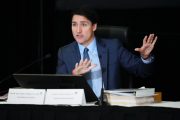
Pope Francis is planning a whirlwind tour of three U.S. cities after a brief stay in Cuba later this month. During the five-day span from September 23 – 27, the Roman Pontiff will visit the U.S. for the first time in his life. His route encompasses Washington, DC, New York City and Philadelphia, Pennsylvania, with an itinerary that includes a first-ever papal speech to the joint houses of Congress, a meeting with President Obama, an address to the United Nations General Assembly, Mass at Madison Square Garden, and appearances and remarks at the 2015 World Meeting of Families. The entire schedule for Francis’ Cuban and U.S. travels is published at cnn.com.
Speculation runs wild in the media over what Pope Francis will say to Congress. His unabashed denunciation of capitalism, his refusal to condemn communism, his support of radical UN “sustainable development” and climate change agendae, his calls for world government and his numerous leftist admirers (see here and here) have many wondering whether Francis is himself a Marxist, despite his insistence to the contrary. But the papal track record leaves little doubt about Francis’ views. The only real question is: Which will he emphasize?
The Atlantic expects him to decry capitalism and push for drastic climate change mitigation. Time anticipates calls for nuclear disarmament and radical alteration in U.S. immigration policy. The Huffington Post says he is likely to ask for transformation from free market to socialistic economy.
But everyone agrees Cuba will be a major talking point. Pundits claim that Francis’ decision to visit Cuba before arriving on U.S. soil is significant. Writing for the Washington Post, Nick Miroff credits the pope with facilitating “secret conversations between Cuban officials and the Obama administration that culminated in the announcement in December that the two Cold War foes would reestablish diplomatic relations severed by Washington in 1962.” He claims the purpose of this month’s visit is “to accelerate the process of reconciliation between the United States and Cuba,” since a trade embargo still exists, “and push the Castro government to hasten and deepen the process of change on the island.”
Others are less optimistic. Following the Cuban government’s announcement Friday that it would release 3,522 prisoners in honor of the pope’s visit, former Cuban political prisoner Sebastian Arcos told the New York Times, “It’s makeup.” Arcos explained, “The reality is that Cuban prisons are overpopulated, and they have been for many years, because we are talking about a police state, a repressive police state, where almost anything is a crime. Before [recent] economic reforms were implemented, selling peanuts on the corner in Havana was a crime.”
Yet the stated reason for the pontiff’s American travels is that he wants to attend Philadelphia’s World Meeting of Families. The event is held in a different city every three years since 1994 when Francis’ predecessor, John Paul II, instituted it to discuss challenges facing families in modern society. Last November the pope announced his travel plans in Vatican City to the Colloquium on the Complementarity of Man and Woman. His attendance strikes some as ironic in view of the revised procedures Francis published on September 8 which make it much easier for Catholic couples to have their marriages annulled. Professor Roberto de Mattei of the European University of Rome laments that the pope’s new rules “inflict a grave wound on Christian Marriage” and usher in an age of “Catholic divorce.”
The new rules mark the latest in a series of progressive moves by the Holy See in favor of divorced Catholics and homosexuals. Last year, Francis demoted Wisconsin-born Cardinal Raymond Burke as head of the church’s highest court after the Cardinal’s stinging public criticisms of the pope’s Synod of Bishops on the Family, a meeting that many believe gave an unprecedented papal nod to contraception, sodomy and Communion for the divorced and remarried. Though the 2014 assembly merely prepared an agenda for its sequel to be held in October this year, it sparked heated debate worldwide. More than 450 priests in Great Britain signed an open letter complaining that “much confusion has arisen concerning Catholic moral teaching” in the wake of the synod. Hundreds of religious in the United States have followed suit with an ongoing petition at CredoPriests.org.




